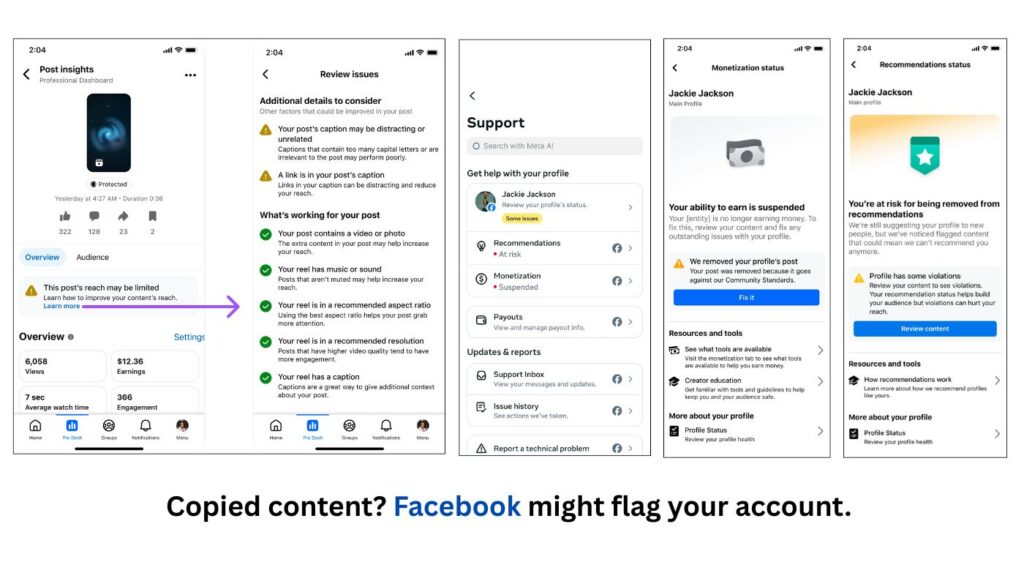Meta is all about creativity. The days of copy-paste content farms are behind us; Facebook is all in on the cleanup. Just a few days after YouTube’s own “Keep it real” memo, Meta went all out on their originality crackdown against “unoriginal” content.
What’s “unoriginal,” exactly?
Meta is not going after reaction videos or expressive meme edits. The problem lies with these accounts scamming views by reposting the text, photos, or clips of others without a single shred of transformation, no commentary, no engagement, no creativity. There is a limit.
What’s Meta doing about it?
Downgrading copycat content: Duplicate copies of videos are given less exposure, so that original content reaches your feed much earlier.
Monetization locking: The copy-pasters are stripped of temporary access to monetization on Facebook. That must hurt.
Redirecting viewers: A new-age slick test of ‘See original’ links on reposted clips is about to be launched.
Even higher up the chain, Meta kicked out 10 million impersonators and spammy accounts in the first half of 2025, including 500,000 that were involved in fake engagement or bulk reposting.

Why now? AI slop, baby.
Thanks to such text-to-video tools and voice-sync technology, anyone can generate highly disorganized AI content for high view counts.
Now, YouTube is rumored to have caught wind of it all and tightened its YouTube Monetization Rules around mass-produced, repetitive clips.
Meta clearly didn’t want to miss the party, so they raised the originality bar, hard.
For creators: adapt or get left behind.
Don’t stress, Meta did not come down on the side of original creators. Reaction videos, commentary on trends, remix channels, these are all fine. The real target is those who merely repost.
Meta just suggests:
- Giving originals operate the camera or mic.
- Add context narration, talking about the workplace, anything!
- No more watermark copy-paste say no to cut-and-paste branded reposts.
- Fix those captions, ditch the auto-generated nonsense!
What about errors in enforcement?
The one-track nature of some Meta decisions and actions has led to a number of high-profile scandals. Excessive automation led to wrongful account suspensions, and over 30,000 people signed a petition demanding action.
Meta has not yet gone public with its response, but the crackdown is being rolled out slowly, under the guise of “post-level insights” and a dashboard to guard against violations before they’re applied either to monetization or distribution.
Copycats, as Facebook calls them: “Step aside; only originals allowed.” With an increasing number of AI tools making it easier to pump out low-effort content, Meta is fighting this battle to ensure their feeds do not become Content Farmville 2.0. As far as creators go, the days of lazy reposting are gone. The creatives with clarity and personality now finally have a shot at fame.
